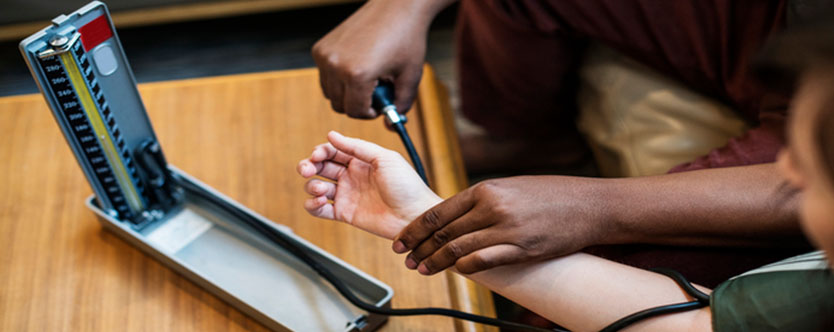We all know at least one person who is suffering from high blood pressure. This is because high blood pressure is a
[the_ad id=”6114″]very common chronic condition in India with over 10 million cases every year. A reading below 120/80 is considered as normal blood pressure and high blood pressure is defined as blood pressure above 140/90 and is considered as severe if the pressure crosses 180/120.
Generally, high blood pressure has no symptoms which increases the chances of heart damage and other chronic illnesses. Therefore, it only makes sense for a person to start taking precautionary measures in order to lower the risk of high blood pressure. This article will talk about the measures you should definitely take to regulate your blood pressure levels and reduce the risk of other chronic heart diseases.
Read on to find out:
Keep a watch on your weight: According to various studies, being overweight has been linked with an increase in blood pressure. According to studies, for every 1 kg of weight, blood pressure is lowered by approximately 1 millimeter of mercury (mm Hg). In addition to that, too much weight around your waist can also increase the chances of you falling prey to high blood pressure.
Exercise regularly: Studies have shown that indulging in regular physical activity can lower blood pressure by about 5-8 mm Hg. It is best to enroll yourself in a fitness program that covers everything right from cardio to strength training. Keep in mind that losing consistency in your workouts can increase the chances of your blood pressure rising again.
Control your sodium intake: In various research studies, salt has been linked to heart-related problems and high blood pressure. With more and more people turning to junk food for snacking, the levels of sodium in their body is increasing which in turn increases the risk of high blood pressure. One way to lower blood pressure is to increase your potassium intake as it is known to lessen the effect of sodium on blood pressure. Food items like bananas, tuna, beans, yogurt, nuts, etc are rich in potassium.
Keep a check on your blood pressure: It was always wise to keep a check on your blood pressure by monitoring your levels as it can help you modify your diet and lifestyle accordingly. It also helps in detecting any potential risks and complications. In addition to that, it is imperative to work with your doctor from time to time to ensure that everything is in order.
Lower your alcohol consumption: According to studies, alcohol has been linked to 16% of high blood pressure cases. Though it is true that low-to-moderate levels of alcohol are good for the heart and overall health, it is recommended to not consume more than one drink in a day. However, quitting alcohol is something that you can consider if you are a patient of high blood pressure.
Reduce your stress levels: It is no surprise that stress can majorly alleviate blood pressure. When a person is experiencing stress, he experiences a faster heart rate and constricted blood levels. Chronic stress can take a very heavy toll on a person’s blood pressure and overall quality of life. High blood pressure or not, one should always be on the lookout for ways to manage stress.
Source:

